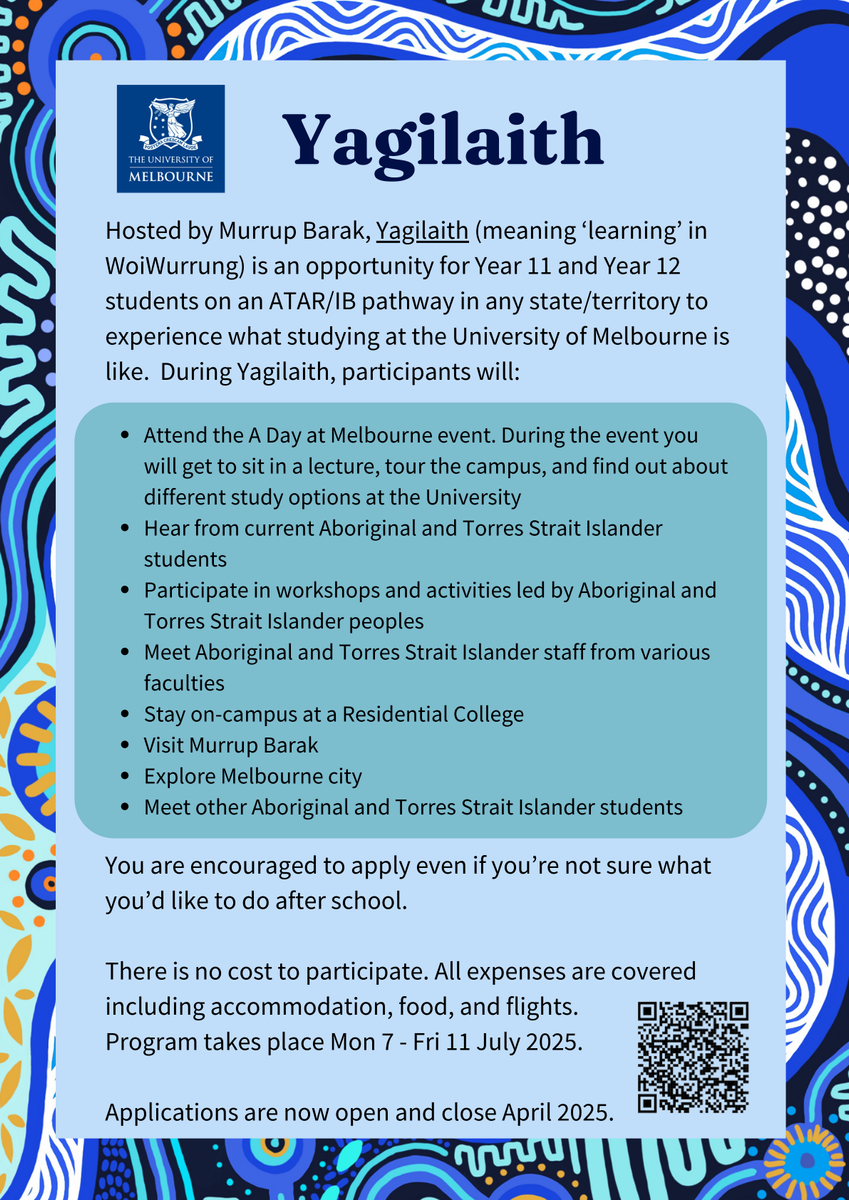Scholarships and Opportunities

BELOW INFORMATION ON:
7 tips for maximising your scholarship application
How should I spend my scholarship money?
CoLab Industry Scholarship
Organisation: Bond University
Location: Australia
Value: 25% tuition fee waiver
Open Date: May 1, 2025
Close Date: August 28, 2025
Frank Hall-Bentick Education Fund
Organisation: Australian Communities Foundation
Location: Australia
Value: Up to $2,500 AUD
Open Date: January 1, 2025
Close Date: June 30, 2025
Elevate: Boosting Women in STEM Scholarships
Organisation: Australian Academy of Technological Sciences & Engineering
Location: Australia
Value: Up to $150,250 AUD
Open Date: May 1, 2025
Close Date: September 1, 2025
Vice Chancellor’s Elite Scholarship
Organisation: Bond University
Location: Australia
Value: 100% fee waiver
Open Date: May 1, 2025
Close Date: July 31, 2025
BUFTA 2025
Organisation: Bond University
Location: All
Value: See details
Open Date: May 1, 2025
Close Date: September 15, 2025
2025 Breakthrough Junior Challenge
Organisation: Breakthrough Junior Challenge
Location: All
Value: Up to $250,000 USD
Open Date: May 1, 2025
Close Date: September 15, 2025
Youth Without Borders focuses on empowering young people to work together to positively change their communities and beyond.
We are a youth led, youth run organisation who believe in the power of diversity and the magic of project based collaboration.
We provide support for young people to make their own ideas a reality and believe that through the power of partnership, the needs of young people can be met.
Student Applications are now open. Melbourne Camp - 7th July - 12th July 2025
Any fees?
Spark Engineering Camp is fully funded by our generous partners and sponsors - no additional expenses are required from our students!
Who can apply?
Any student in grade 10-12 is strongly encouraged to apply, particularly those who come from non-traditional backgrounds. Non-traditional backgrounds may include (but are not limited to) Aboriginal and Torres Strait Islanders, refugees, low socioeconomic status, rural, foster care, or those with special needs.
Is this camp for STEM students only?
Although our camp has a STEM focus, applicants do not necessarily have to aspire to study engineering or similar STEM courses - we welcome students from all aspirations! We look for students with a can-do attitude who are willing to give it a go.
7 tips for maximising your scholarship application
Thinking of applying for a scholarship? There are heaps of reasons why you should - but how can you make sure your application is the one that stands out from the crowd? We have some tips for maximising your scholarship application.
Start early
Some scholarship applications can be quite involved and need a lot of information, so it's best to ensure you give yourself enough time to get all your documents together and can craft a quality application. Plus, the earlier you start the less likely it is you'll miss the closing date!
Use examples
There are lots of scholarships that will probably ask you to demonstrate your skills or experience - so think of situations you've been in and how they might specifically apply to the scholarship you're applying for. A great way of doing this is by using the STAR method:
- Situation: Describe the situation and when it took place.
- Task: Explain the task, the goal and your role.
- Action: Provide details about the action you took.
- Result: Talk about the results of your actions, try and use concrete numbers or evidence if possible.
Read the criteria carefully
While it might seem like a good idea to cast a wide net, you should still make sure you're eligible for any scholarships you apply for. At the end of the day, you'll not only be wasting the assessor's time but your own as well.
Do some research
If the scholarship is offered or sponsored by a donor, do some research on them. Think of ways you can tie your skills and experience together with the donor's mission or goals, and use this to your advantage. It shows you've gone that one step further and can make your application stand out.
Make it personal
A lot of the time, institutions will want to know a bit more about you and your motivations. It's important to answer any questions honestly and not just say what you think they'll want to hear. And if your personality and interests tie in with the scholarship criteria, even better - use that as a way to show why you're most deserving of the scholarship.
Keep it relevant
Building on the point above, it's also important to make sure you don't spend lots of time waffling on about things that aren't relevant to the scholarship. Addressing any eligibility criteria in a way that's both concise and relevant is a great way to maximise your application (plus a lot of applications will have word limits you need to stick to as well).
Don't limit yourself
There are literally thousands of scholarships out there - so give yourself the best chance of winning one and apply for as many as you can. Lots of scholarships go unawarded every year simply because people don't apply! Don't forget to keep point three in mind though, and make sure you're eligible before applying.
Interested in applying for a scholarship? You can search through hundreds on our database here.
How should I spend my scholarship money?
Once you've overcome the hurdles of applying for and receiving a scholarship, the next step is deciding what to spend the money on. If this is your first foray into financial freedom, the temptation can be nearly overwhelming. Late night Uber Eats spree? Update your wardrobe for the new semester? Plus there’s that phone upgrade you’ve had your eye on for a while…
Sadly, we have some bad news: there are definitely more important things you should spend the cash on. After all, the reason you applied in the first place was to help with the costs of your education, right? Let’s take a look at some of the best ways to spend your scholarship money.
Before you spend a cent…
First things first: make sure you read the scholarship’s terms and conditions very carefully. Some scholarships will have specific rules about what you must spend the money on. If your scholarship has strict requirements, don’t try and spend it on something else – you’ll just end up in a world of trouble.
Wise ways to spend your scholarship money
Free to spend the money on whatever you’d like? Here are some of our top suggestions.
Tuition fees
One of the biggest costs of higher education is tuition and course fees. So it just makes sense to use your scholarship funds to cover as much of it as possible. The top benefit is not having to worry about acquiring student loans and stressing about paying them back once you graduate.
Education expenses
Outside of tuition, there are probably lots of other things you’ll need to buy for your educational journey too: textbooks, a laptop or tablet, stationery, special tools or equipment… This can all gradually add up to quite a bit of money – so why not put some of your scholarship towards these expenses?
Accommodation and living
If you’re moving out of home to study, you’re going to need somewhere to live – and you’re going to have to pay for it too. Your scholarship can help take some of the pressure off the cost of living, covering rent, utilities, meals, furniture, appliances, or other living essentials.
Travel expenses
On the other hand, if you need to commute to classes, you might like to use your scholarship money to cover these costs instead. Put down a deposit on a car, use it to fly home and see family on the holidays, or use it to pay for fuel or public transport fares.
Invest in yourself
Studying can take up a lot of your day. And if you work too, you might find yourself with even less free time. If you don’t need the money for anything else, use it to support your own health and wellbeing. You might like to pay for a gym membership, use it to cover medical appointments, or invest in a hobby to enjoy on your days off.
Put it away
If you don’t currently have a steady source of income, it might be best to open up a savings account and just store the money away. That way you can feel secure knowing you’ve got money to cover emergencies. Or you could even use it as motivation to study hard and save it for a big celebration when you graduate (like an overseas trip).
Budgeting is still important
No matter how you decide to spend (or save) the money, having a budget is still important. It might be tedious, but it will keep you from overspending and teach you good habits for the future.
You might like to check out some easy ways to save money as a student.
Find out more
At the end of the day, how you choose to spend the money comes down to your personal circumstances. Whether or not you already have an income, your living costs, and your lifestyle can all come into play when deciding the best course of action. Don’t forget you can always ask for advice from your parents, friends, or the student support team at your university.
Ready to apply for a scholarship? Take a look at our scholarships database to search for opportunities.

